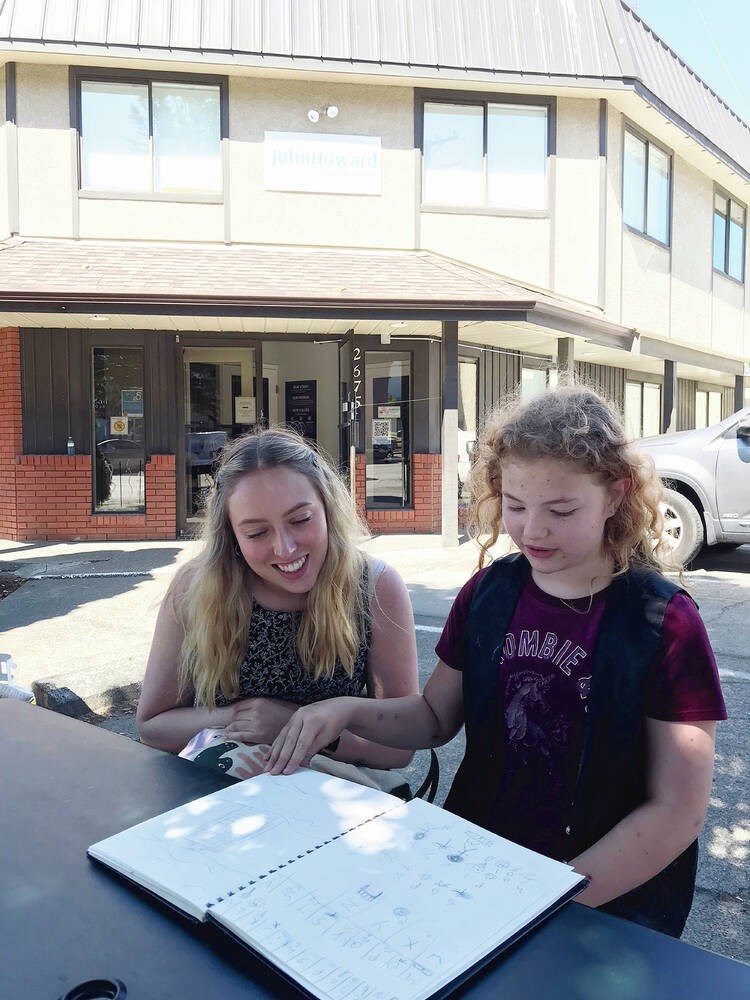January is national Mentorship Month, but two organizations that match mentors with those who need them say there just aren’t enough to go around.
Many volunteers who bowed out due to COVID-19 haven’t returned, leaving groups struggling to replace them in the past year or so.
Big Brothers Big Sisters of Victoria Capital Region says it has a backlog of about 160 children looking for a suitable match, while the John Howard Society Victoria says it has a waitlist of 40 children.
“Children and youth are navigating a complex world and demand for our programs has increased,” said Amanda Hill, executive director Big Brothers Big Sisters of Victoria Capital Region.
“At the same time volunteers that we lost during the pandemic haven’t come back. We’re seeing it as part of a general shift in volunteerism.”
Some children are waiting up to a year for a suitable Big Brother or Big Sister that they can turn to for support or confide in when faced with life’s adversities, she said.
The shortage of mentors has resulted in youth reporting they are experiencing increased challenges, such as emotional coping difficulties, low self-esteem and being bullied, Hill said.
The situation is much the same at John Howard Society Victoria, whose KidStart mentorship program is geared towards children and youth, ages seven to 18, who are facing significant challenges. All of the youth registered in the waitlist come from referrals by school counsellors, social workers and police.
“It is heartbreaking to see children waiting, sometimes for over a year, for mentors,” said Manj Toor, executive director for John Howard Society Victoria, who said three-quarters of those on the waitlist are looking for male mentors.
“Their needs are simple. Some want to just play a board game, others want to engage in some form of physical activity.”
Both Hill and Toor said being a mentor is not meant to replace the role of a parent — it’s a structured relationship, more akin to a friend, and volunteers are not expected to provide counselling.
“What youth sometimes need is a listening ear, someone who has something, like hobbies, in common,” said Hill. “We’re looking for regular people with regular lives.”
Toor said although KidStart asks mentors to spend a minimum of two to three hours a week for one year with the child, they hope the relationships last longer, for the sake of the child.
“Constant change is not fair to youth. They deserve a long-term positive role model they can rely on,” said Toor, who notes that children in the KidStart program are typically more vulnerable, but not all of them are involved in the justice system.
He said KidStart is meant to be a preventative program that connects children with a positive and consistent role models.
Hill and Toor said becoming a mentor is different than other kinds of volunteering. It can take eight to 12 weeks before a mentor is ready to be matched up with a child.
To start, all applicants need to be screened, with character references and a criminal record check. If everything checks out, the applicant will be invited to sit down for one-on-one interviews with staff to determine their eligibility.
Successful applicants will receive ongoing training, support and supervision.
Big Brothers Big Sisters of Victoria Capital Region has a roster of 276 volunteer mentors who spend 14,000 hours a year with 451 children.
Mentors there range from individuals in their 20s to those in their 70s, with the oldest 86. There is even an in-school mentoring program for high-school students looking for volunteer credits for graduation. A number of couples also mentor collaboratively.
Hill said children are increasingly asking for gender-diverse and non-judgemental role models.
The majority of volunteers at John Howard Society’s KidStart program are between 25 and 35. While mentors can range from 19 to 55, the bulk of the volunteers are students seeking a career in social work.
“It’s multi-pronged for them: They can volunteer and get credit for their graduation requirements, get an insight on what to expect in their chosen career path and at the same time, gain skills and training that they can use after they graduate,” said Toor.
Big Brothers Big Sisters volunteer Mike Wyeth became a mentor to nine-year-old Nick in 2005. Almost 20 years later, the two still keep in touch.
“He’s like a lifetime friend,” said Wyeth, a retired forester with four children and six grandchildren of his own. “It’s an incredible privilege to watch a child or youth grow and develop into an adult. You’re not replacing a parent. It’s like a parallel relationship where you can give them all sorts of advice — which they can choose to ignore.”
He said that although there was a 50-year age difference between the two, it didn’t seem to matter.
Children in the Big Brothers Big Sisters program are typically age seven to 18, when the structured relationship officially ends. However, the two can choose to maintain a more casual, social relationship outside the confines of the mentoring program.
Wyeth is open to mentoring another child, but so far, the organization hasn’t found the right match for him.
Prospective mentors get to meet with the children before they are paired — and sometimes they don’t “click” for whatever reason. Even if they have been paired, they can terminate the relationship at any time.
Mentors and their charges spend time taking walks, doing activities such as tennis or hockey, going to games together or just hanging out. Organizations typically get free tickets for various games and events and distribute them to interested parties.
For more information, go to .
For more information, go to



